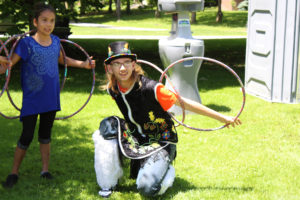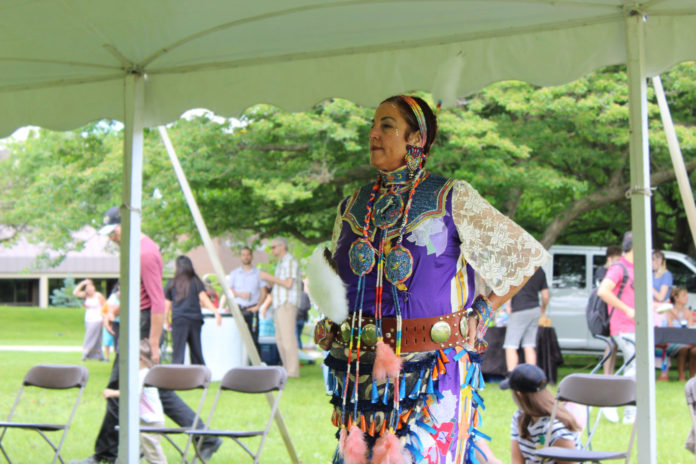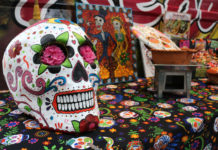In honour of her late mother, Justice Audrey Greensummers wore a healing jingle dress and performed in the Jingle Dress Dance as a gold age dancer, a dancer who is over sixty years old.
Although Greensummers was raised in Southern California, she is a part of Six Nations of the Grand River Treaty and moved to Canada to join her culture once again. For her, National Indigenous Peoples Day is a day to celebrate the many cultural and historical experiences of Indigenous peoples in Canada.
“I think it’s really great that Canada is recognizing Indigenous people … it’s important because it’ll always be in the minds of all Canadian people that there [are] unique cultural and historic experiences that Indigenous people have,” she said. “If you are an Indigenous person, it gives you some acknowledgement that you are here and that you matter and that you’re unique and that your contributions, even as an individual being are meaningful.”
National Indigenous Peoples Day was on June 21, with many different events held in the K-W region. At St. Paul’s University College, the Waterloo Indigenous Student Centre (WISC) hosted a free event for students and community members to partake in. Many members of Indigenous communities shared songs and dances from their unique cultures, vendors sold handmade jewellery and art, and attendees shared a meal.
This was the second year that the event was hosted on the UW campus. Prior to 2018, WISC hosted events with the City of Waterloo and other organizations.
Cheryl Maksymyk, student services coordinator of WISC, is not Indigenous herself but she grew up alongside Indigenous sisters in Manitoba. Now, she sees National Indigenous People Day as a chance to celebrate Indigenous people and identities.

“From a personal perspective, [the purpose of this day is about] celebrating family and friends that identify as Indigenous and also recognizing the land that we’re on and the country that we’re from and who the first peoples of these lands are,” she said.
Berry Vrbanovic, mayor of Kitchener, also attended the festivities. He stated that it is important for all Canadians to recognize and honour Indigenous cultures. He said that the Kitchener’s city council will add a land acknowledgement as a permanent feature of their meetings. In addition, Vrbanovic’s staff will undergo training on Indigenous issues to better help Indigenous people in the region.
“It’s an opportunity to celebrate our founding nation who has such a rich history in our country and it’s also a history that I think … we haven’t honoured,” Vrbanovic said. “Through the work of the Truth and Reconciliation Commission we’re seeing more and more of these kinds of events which are great because they’re helping build understanding between our Indigenous people and other Canadians.”
Greensummers stated that it is especially important to support student initiatives. She said being a student can be a difficult part of life, and that it is important to support students who are contributing to their community and culture.
“We always try to support student activities and universities or colleges when they put on these types of events. I think it’s important that students are supported because being a student can be a very challenging time in your life,” she said. “I believe very much in education and know it’s a gateway for many people to have a better life and contribute to their life and economy and to society and their culture and back to their people and so that’s why I’m here. There’s a lot of places we could have gone to today but it’s a university so I brought my son to support what’s happening here.”































